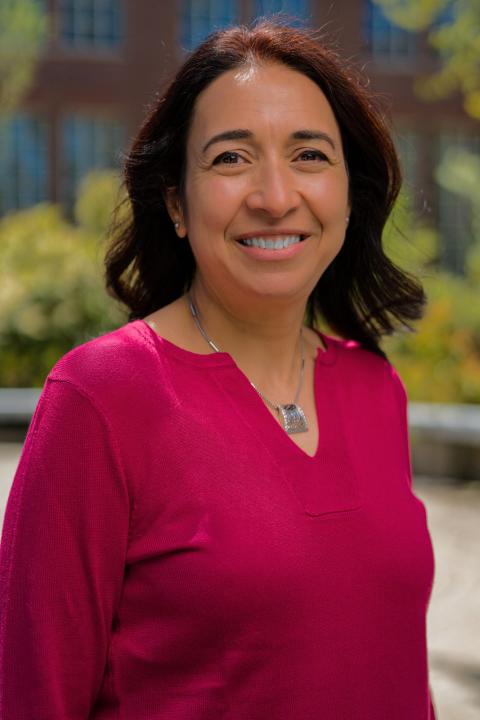
Sherine Elsawa
Our research focuses on 3 overlapping aims: Understanding the biology of Waldenstrom's macroglobulinemia (WM); Understanding the role of GLI proteins in regulating inflammation and antibody secretion in normal and WM cells; and Understanding the role of cytokines in the tumor microenvironment (TME) on WM.
1. Identification and characterization of novel GLI target genes in the tumor microenvironment.
2. Characterizing novel epigenetic regulation of WM and the TME.
3. Identification and characterization of the role of GLI proteins in Waldenström macroglobulinemia and other B cell malignancies.
4. Identification and characterization of novel signaling pathways that regulate GLI proteins.
5. Characterization of the role of GLI in inflammation.
6. Characterization of the role of GLI in B cell biology and immunoglobulin secretion.
Courses Taught
- BIOL 799H: Honors Senior Thesis
- BMCB 401: Persp Biochem/Mole&Cell Bio
- BMCB 605: Principles of Cell Biology
- BMCB 795W: Invest in Molecular & Cell Bio
- BMCB 799H: Honors Senior Thesis
- BMS 705: Immunology
- BMS 715: Immunology Laboratory
- BMS 790: Undergrad Teaching Experience
- BMS 795W: Investigations Biomedical Sci
- BMS 799H: Senior Honors Thesis
- BMS/MICR 705/805: Immunology
- BMS/MICR 715/815: Immunology Laboratory
- GEN 799H: Honors Senior Thesis
- INCO 403: Healthcare Professions Seminar
- MCBS 999: Doctoral Research
- MICR 805: Immunology
Education
- Ph.D., Biology, University of North Carolina at Chapel Hill
- M.S., Florida International Universi
- B.S., Alexandria University
Research Interests
- Cancer Biology
- Epigenetics
- Immunology
- Lymphoma
- Tumor Immunology
Selected Publications
Matissek, S. J., Han, W., Karbalivand, M., Sayed, M., Reilly, B. M., Mallat, S., . . . Elsawa, S. F. (2021). Epigenetic targeting of Waldenstrom macroglobulinemia cells with BET inhibitors synergizes with BCL2 or histone deacetylase inhibition. EPIGENOMICS, 13(02), 129-144. doi:10.2217/epi-2020-0189
Han, W., Sklavanitis, B. L., Jackson, D. A., Matissek, S. J., & Elsawa, S. F. (2018). The tumor microenvironment protects against ibrutinib but not rituximab-mediated control of Waldenstrom macroglobulinemia (WM) in vivo. In CANCER RESEARCH Vol. 78. doi:10.1158/1538-7445.AM2018-193
Han, W., Cummings, H., Fleck, S., Vahabzadeh, S., & Elsawa, S. F. (2018, April 11). Copper Doped Tricalcium Phosphate; Phase Composition and in vitro Interaction with Osteoblast Cells. In 2018 Society for Biomaterials. Atlanta, GA. Retrieved from https://2018.biomaterials.org/poster-presentations
Li, W., Gupta, S. K., Knudson, R., Han, W., Elsawa, S. F., Griepp, P., & Gupta, M. (2017, December 8). Targeting Bromodomain and external domain epigenetic reader protein as effective strategy for double hit and triple-hit B-cell lymphoma. In 2017 American Society of Hematology Annual meeting Vol. 1472. Atlanta, GA. Retrieved from http://www.bloodjournal.org/content/130/Suppl_1/1472
Cummings, H., Han, W., Elkwae, K., Vahabzadeh, S., & Elsawa, S. F. (2018, April 11). Effects of Copper on Physical, Mechanical, and Biological Properties of Brushite Cement. In 2018 Society for Biomaterial. Atlanta, GA. Retrieved from https://2018.biomaterials.org/poster-presentations
